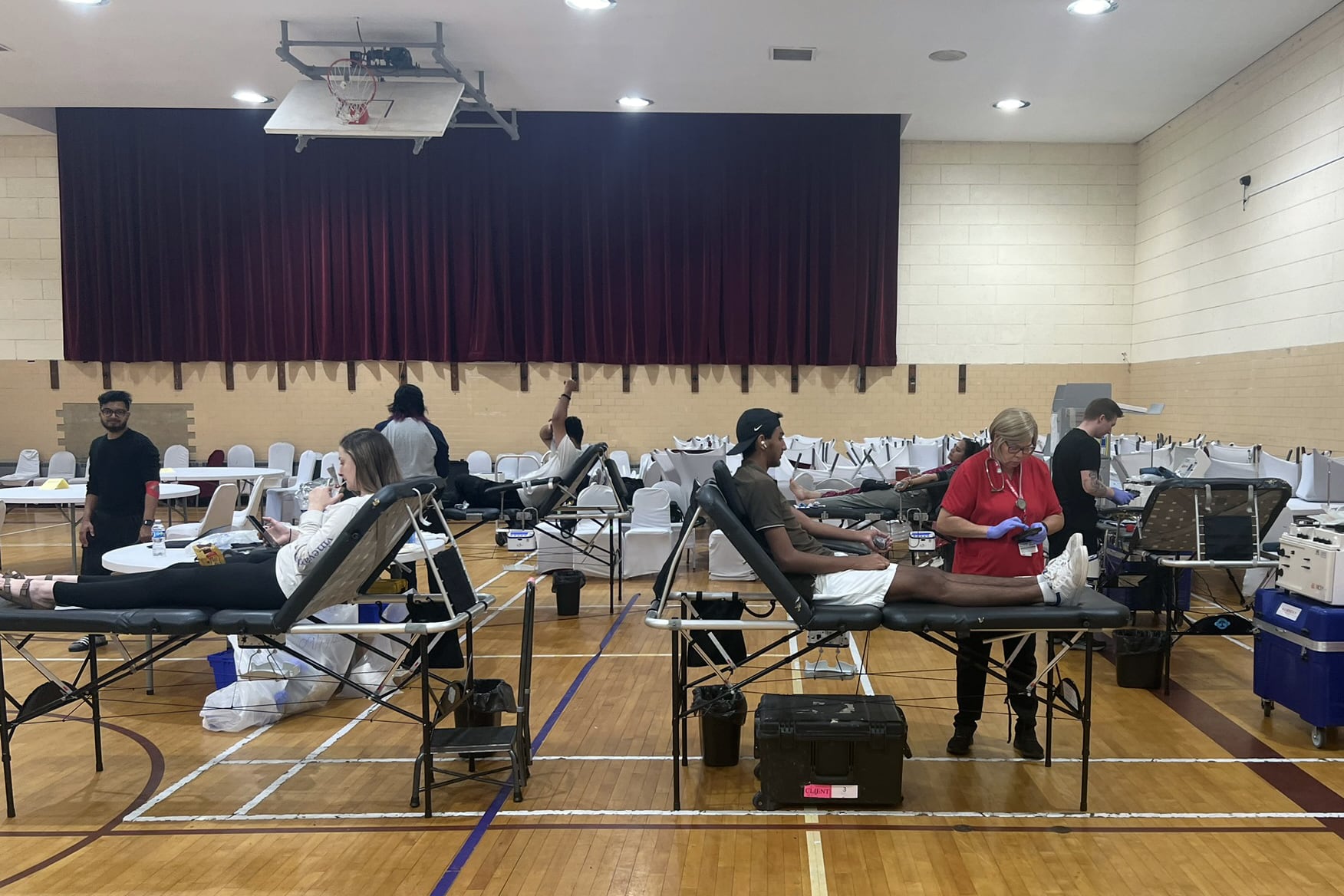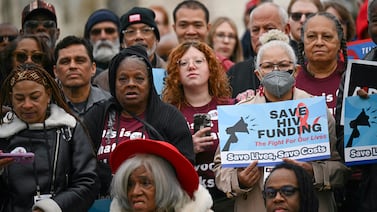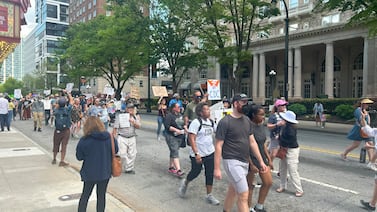Public health, explained: Sign up to receive Healthbeat’s free New York City newsletter here.
A Hudson Valley group encouraging men to get screened for prostate cancer. A community-centered café in Buffalo hosting public health workshops. A food systems organization on the Canadian border working to expand access to farmers markets.
In recent years, many small organizations in New York state have received funding for local health initiatives through the COVID-19 Health Disparities Grant from the Centers for Disease Control and Prevention. The grant, administered by the New York State Department of Health, aimed to address health disparities exacerbated by the Covid-19 pandemic and expand access to public health resources. Many organizations were preparing to continue their work this year.
But last week, an email went out from the Health Department: The projects were over. The CDC had abruptly terminated funding for the grant — part of multibillion-dollar cuts by the U.S. Department of Health and Human Services — and these hyperlocal health projects were among the casualties. New York has joined other states to sue over the grant terminations, which a judge temporarily blocked last week, throwing the future of the projects into limbo.
Erin Clary, a Health Department spokesperson, said the judge’s order put “a hold on the previous federal grant cuts, and resulting impacts.” The cuts had resulted in layoffs at Health Research Inc., a nonprofit arm of the Health Department that worked on the Small Wellness projects. On Wednesday, many of the terminated HRI employees were informed that they could return to work on Friday, Clary said.
“The situation remains fluid, but the Department’s mission has not changed. We remain committed to protecting the health and well-being of all New Yorkers,” Clary said.
Still, organizations working on Small Wellness projects are grappling with the termination of their contracts. Many organizations had received just under $50,000 for health-related projects, which they completed last year, and had recently been offered the chance to extend their work this year, with additional funding of about $10,000 for Sustainability projects. The funding offered a rare opportunity to invest in local public health work, many leaders said.
“The sentiment isn’t necessarily anger and outrage; it’s more like grief,” Stephanie Smith, the board president of Big Big Table Community Café, said of the grant terminations.
In Buffalo, Big Big Table serves lunch through a pay-as-you-can model, meaning that patrons can offer money, groceries, or labor in exchange for a meal. Last year, through a Small Wellness Mini Grant, the café hosted a series of health workshops and wellness events, on topics like mental health, nutrition education, and housing insecurity, and offered materials on diabetes and Long Covid to participants. This year, Big Big Table expected to receive nearly $10,000 to continue its work.
For an organization with a small budget, the abrupt loss of those funds was a “very tangible loss,” Smith said.
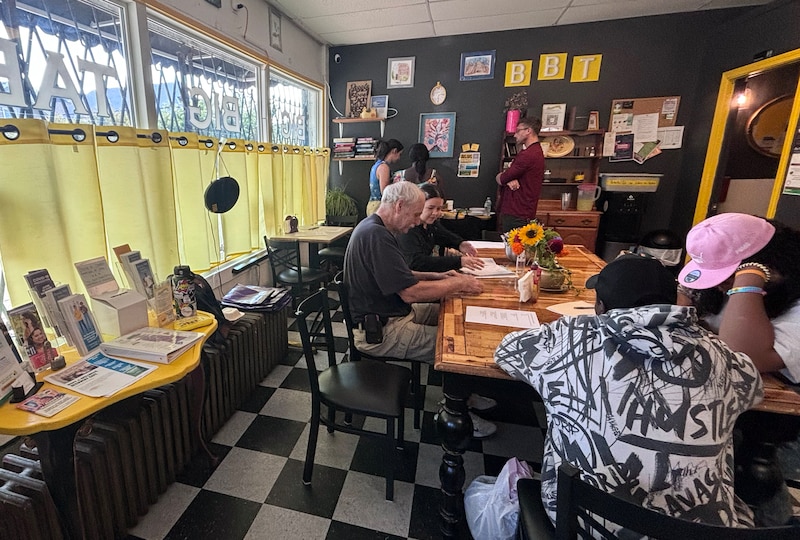
Hyperlocal health initiatives in limbo
Luis Abramson was diagnosed with prostate cancer just before the Covid-19 pandemic hit. Surprised by the dearth of local resources in Orange County, New York, he founded Cultivating Healing and Justice Initiative Support Services Inc., an organization dedicated to raising awareness about prostate cancer, which is common in men and treatable if caught early.
Abramson said it can be difficult to reach men — let alone persuade them to get screened — so he has used creative tactics, like offering prostate cancer screenings at car shows.
Through the Health Department’s Small Wellness Mini Grant of about $50,000, Abramson hosted community walks and local events with food trucks, musical bands — and prostate cancer screenings. His organization has screened more than 60 men, many of whom went on to receive follow-up care, Abramson said. He’s hoping to see funding for the Small Wellness projects return.
“I was able to turn around and work with a penny, and make that penny look like it was millions,” he said.
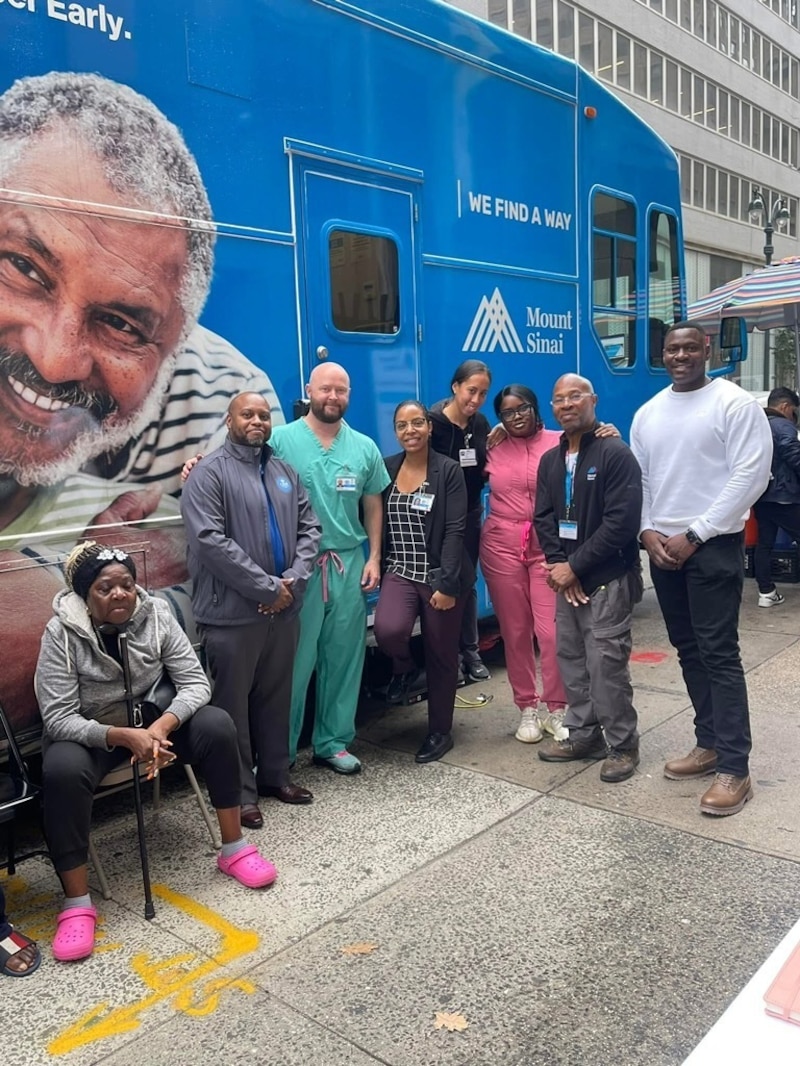
Anwar Chowdhury also saw how far a small grant could go. The president of the Bangladeshi American Social & Cultural Organization, Western New York, Chowdhury’s organization used its roughly $50,000 Small Wellness Mini Grant to offer health programming for Buffalo’s Bangladeshi community.
There was a health festival, promoting healthy lifestyles and connecting residents to resources like the public library and domestic violence support, as well as community seminars on topics ranging from mental health to smoking cessation. The group invited doctors to speak and offered information in Bangla, the Bengali language.
This year, Chowdhury hoped to put on an even bigger health festival. But that will be more difficult without a Sustainability grant, he said. Chowdhury expressed frustration that the Health Department had terminated funding it had offered so recently.
“We didn’t know that we would have the grant. It was added later,” he said of the Sustainability grant. “Then again, it was taken out.”
In the Capital Region, the Black Abolitionist Directive, a grassroots organization, focuses on direct action, mutual aid, and helping address individual community needs — whether that’s driving someone to a doctor’s appointment or helping with child care.
Through a Small Wellness Mini Grant of about $50,000, the group distributed Covid-19 test kits, along with school supplies, to local children at back-to-school events, and built a website to increase access to local resources, said co-founder Kasey Charles. Expecting a Sustainability grant this year, members had planned to focus on supporting the local transgender community.
The loss of the grant funding was disappointing, Charles said, but he noted that the organization has supported the local community without funding before.
“It’s not going to stop us completely,” he said. “It may slow us down, definitely, but we’re still going to do the work.”
Efforts to expand access to healthy foods impacted
In northern New York state, near Ottawa, GardenShare works to promote a healthy, secure local food system for residents of St. Lawrence County. The organization operates in a rural region with a high poverty rate, where some residents travel long distances to access food, said executive director Carlene Doane. Her organization expands access to farmers markets and helps residents afford locally grown food.
GardenShare had received a roughly $50,000 Small Wellness Mini Grant that supported its work at farmers markets last year, as well as an effort to bring food education to local schools, through programming on local food systems, nutrition and composting, Doane said. The organization had expected to receive a Sustainability grant, and Doane said she had been looking forward to partnering with the Health Department again.
“Having diverse funding sources is very important, but at the same time, when a stream dries up, it’s disheartening,” she said.
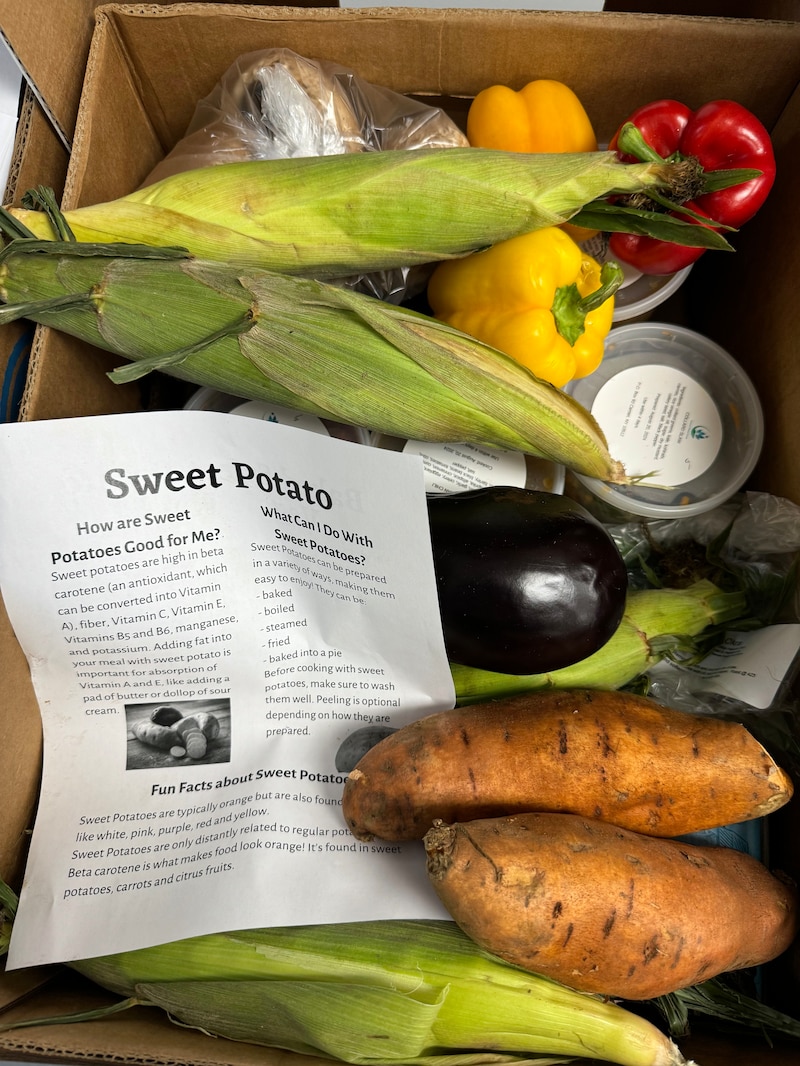
In the Lower Hudson Valley, Martha Elder runs Second Chance Foods, a food rescue and hunger relief organization that collects food from grocery stores and local farms and creates nutritious meals for community distribution.
The organization’s Small Wellness Mini Grant had helped fund a program expanding local food distribution, including by giving out boxes of fresh produce, prepared food and information about preparing healthy meals, Elder said.
“We were really able to use the money to feed hungry people,” she said.
With the recent opportunity to continue the work through a Sustainability grant, Elder planned to double down on feeding hungry people. Instead, she is grappling with the local consequences of sweeping federal funding cuts.
“They’re just chainsawing off programs and parts of the government, and not even really understanding how the money is being used: to help the most vulnerable Americans,” she said.
Eliza Fawcett is a reporter covering public health in New York City for Healthbeat. Contact Eliza at efawcett@healthbeat.org.

